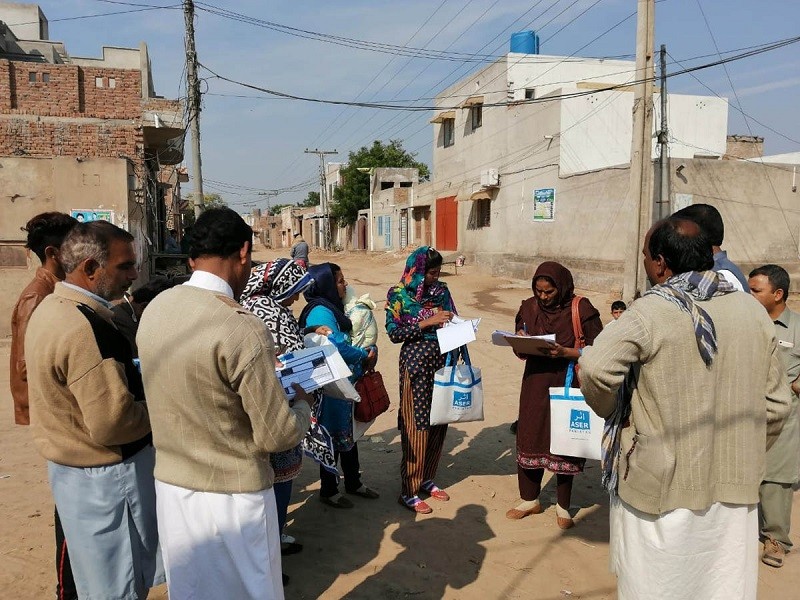By Hamid Khan Wazir
ISLAMABAD, Pakistan: At least 32.3% children of class 2-3, 77.3% children of class 4-6, and 95.5% children of class 7-8 in Pakistan can do a set of foundational numeracy tasks aligned to Sustainable Development Goal SDG4.1.1 (a).
This was revealed in the International Common Assessment of Numeracy (ICAN) report released by People’s Action for Learning (PAL) Network.
According to the report, Pakistan lags only behind Bangladesh in the South Asian region in the minimum proficiency level of students of class 2-3, demonstrating skills in number sense and computation, shape recognition and spatial orientation, with a score of 32.3% and 53.0% respectively.
In Nepal, 19.8% children of class 2-3 could perform foundational numeracy tasks while in India, only 10.4% children of the same grades could do the tasks aligned to SDG 4.1.1 (a).
The indicator measures the percentage of children in primary education and at the end of secondary education reaching at least a minimum proficiency level in reading and mathematics.
The report was launched virtually by Dr. Silvia Montoya, Director UNESCO Institute for Statistics.
Pakistan lags only behind Bangladesh in South Asian region in minimum proficiency level of students
The launch event also saw a panel discussion with Dr. Montoya; Dr. Rukmini Banerji, CEO Pratham Education Foundation, India; Dr. James Otieno Jowi, Principal Education Officer, East African Community; Dr. Sylvia Schmelkes, Academic Vice-President, Universidad Iberoamericana, Mexico; and Mr. Boureima Allaye Toure, Chairperson National Council of Civil Society Organizations, Mali which was moderated by Baela Raza Jamil, CEO Idara-e-Taleem-o-Aagahi (ITA), Pakistan.
The ICAN tool was administered as part of a household survey in one rural district in each of the 13 countries who are a part of PAL Network, including Pakistan, Kenya, Bangladesh, India, Mali, Mexico, Mozambique, Nepal, Nicaragua, Nigeria, Senegal, Tanzania, and Uganda.
In Pakistan, ICAN was conducted by ITA that also conducts the Annual Status of Education Report (ASER) survey. ASER Pakistan, with support from its global South-South Alliance, the PAL Network, tested the common set of numeracy items under ICAN in Toba Tek Singh district of Punjab.
ICAN is an assessment of foundational numeracy using common items and provides data on early grade/lower primary learning.
It further highlights gaps in foundational numeracy even for older children. Assessment domains were decided based on discussions with international assessment stakeholders and global partners.
While ASER Tools are based on basic numeracy skills adapted from grade 2-3 level curriculum, with tasks including number recognition, addition, and division problems, ICAN tools are a step ahead with tasks ranging from number knowledge to geometry, measurement, and data display.
In Toba Tek Singh, the survey reached a total of 60 randomly selected rural communities, 1,198 households, and assessed 1,616 children in the age group of 5 to 16 years. Children were asked to do a variety of numeracy tasks. All tasks were done one-on-one with children in their homes.
Findings from ICAN 2020 further show that 80.7% children of age 6-16 are enrolled in government schools in Pakistan, 16% are in private schools and 0.2% are in other religious or community schools.
Only 3% children of the same age group were found out of school. Toba Tek Singh was observed to have better household facilities with 88.1% of households having walls of permanent material, 91.7% households with toilet, 99.2% electricity, 86.1% mobile phones and 70.5% households having televisions.
However, most households lacked the facilities of computer (18.3%) and extra reading material (24.4%).
The ICAN study has established that children’s minimum proficiency levels (MPLs) globally in reading and mathematics remain low while confirming that despite efforts to bring children in the Global South to school, their minimum proficiency levels have not improved over the years.
Irrespective of the location of the study across the three continents, the data suggests that intensive efforts will be required to ensure that children achieve at least the minimum levels of numeracy expected as part of the SDG 4 goal for education.
“The compelling need for generating robustness to capture globally agreed minimum proficiency levels for both language and numeracy has finally led the PAL Network to reach a global milestone. ICAN, tested in 13 countries including Pakistan is a testimony to the guts of our Network. Conducted with children 5-16 years old, across 60 villages of Toba Tek Singh (Punjab), ICAN could not have had a beer first home landing,” Baela Raza Jamil, CEO ITA who is also leading the ASER Pakistan, notes in the report.
“We at ITA are privileged to be part of a global community of practice that is committed to not just measurement but more importantly learning improvement initiatives on the ground,” she stated.




